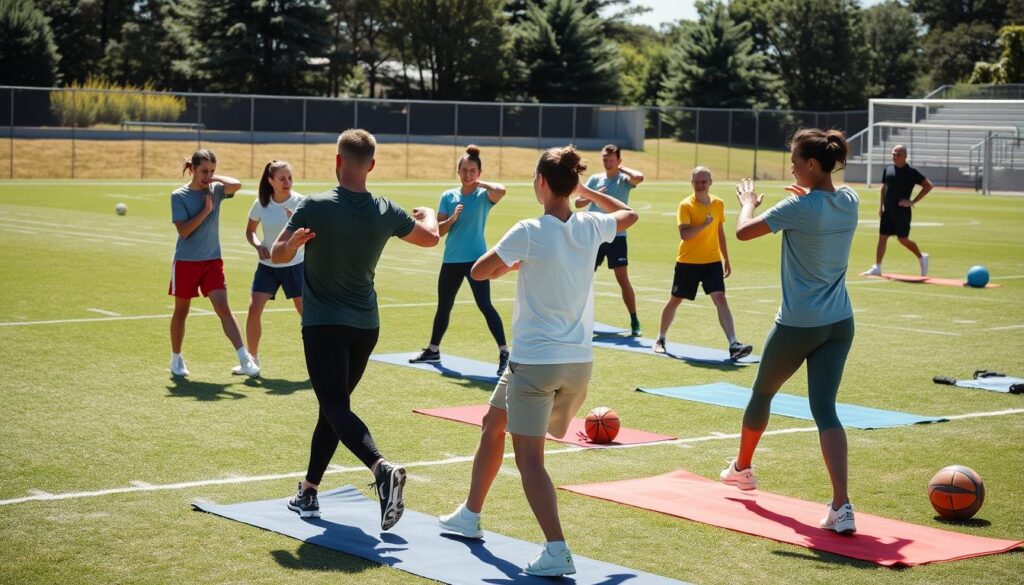Exercise is often celebrated for its physical benefits, but its impact on mental clarity and focus is equally transformative. When you move your body, you do more than strengthen muscles or burn calories—you activate your brain in ways that sharpen your mind, enhance memory, and improve concentration. This powerful connection between physical activity and cognitive health has been supported by numerous studies, revealing that exercise is one of the most effective ways to unlock mental potential.
At the core of this relationship is the release of endorphins and other neurochemicals during physical activity. These “feel-good” hormones not only elevate your mood but also reduce stress, creating an optimal mental state for learning and problem-solving. Additionally, regular exercise stimulates the production of brain-derived neurotrophic factor (BDNF), a protein that promotes the growth of new neurons and strengthens connections in key areas of the brain, such as the hippocampus—essential for memory and learning.
Even small doses of movement can lead to significant improvements. Activities like walking, running, or yoga enhance blood flow to the brain, delivering oxygen and nutrients that boost energy and focus. For example, a brisk 20-minute walk has been shown to improve attention span and creative thinking immediately afterward. Meanwhile, more demanding activities like cycling or strength training can build mental resilience over time, helping you stay calm and composed under pressure.
The benefits don’t end there. Exercise also improves sleep quality, which is crucial for cognitive function. A well-rested mind is more agile, better at retaining information, and adept at tackling complex challenges. Moreover, by reducing anxiety and enhancing mood, physical activity clears the mental clutter, making it easier to prioritize tasks and sustain attention throughout the day.
Incorporating exercise into your routine doesn’t have to be complicated. Start small—take the stairs, go for a morning jog, or try a dance class. Consistency is key. Over time, you’ll notice how these movements not only invigorate your body but also unlock your mind’s vast potential, allowing you to approach each day with clarity, focus, and a renewed sense of purpose.
Key Takeaways
- Exercise significantly reduces the risk of major depression.
- Physical activity can be as effective as antidepressants for treating mild to moderate depression.
- Engaging in regular exercise improves memory, thinking, and self-esteem.
- Activities outdoors, like hiking and skiing, can alleviate symptoms of PTSD.
- Routine physical activity enhances cognitive function both short-term and long-term.
- Even condensed exercise sessions can provide substantial health benefits.
- Regular exercise promotes better sleep quality and boosts overall energy levels.
The Relationship Between Exercise and Mental Health
Regular physical activity plays a vital role in improving mental health, leading to significant enhancements in various psychological aspects. People who engage consistently in fitness routines often experience reduced symptoms of depression and anxiety, contributing to an overall sense of well-being. Research reveals that even small amounts of movement can yield positive results, alleviating mental health challenges while boosting energy levels, sleep quality, and self-esteem.
The impact of staying active goes beyond mood enhancement. Physical activities sharpen attention, focus, memory, cognition, language skills, and decision-making. These mental benefits can last for up to two hours after a session, demonstrating the profound connection between movement and cognitive performance. Such findings emphasize the value of incorporating regular workouts into daily life.
Engaging in fitness activities acts as a natural remedy for stress and anxiety. It lowers cortisol levels while increasing the production of endorphins and other mood-enhancing chemicals. These changes promote emotional balance and stability. Considering that over 20% of U.S. adults face mental health challenges, lifestyle interventions such as maintaining an active routine become essential for improving psychological well-being.
For individuals managing conditions like anxiety and ADHD, staying active provides a beneficial alternative or complement to traditional treatments. For more complex issues like PTSD, physical movement helps alleviate symptoms such as heightened stress responses and intrusive thoughts. By optimizing the body’s hormonal balance, regular activity fosters resilience, underscoring its importance as a cornerstone of mental health care.
Understanding Mental Abilities and Focus
Mental abilities encompass a variety of cognitive processes, including attention, memory, and problem-solving skills. Focus, the ability to maintain concentration on tasks while resisting distractions, is a crucial component of these mental faculties. Exploring these cognitive dimensions reveals how practices like physical activity can significantly enhance them. Scientific studies consistently highlight the benefits of exercise, showing how it stimulates key brain regions involved in information processing and decision-making.
For instance, engaging in brain-teasing activities like jigsaw puzzles not only taps into multiple cognitive functions but also acts as a safeguard against age-related cognitive decline, particularly in visuospatial skills. Similarly, a fast-paced card game has been linked to increases in brain volume, fostering improvements in memory and analytical thinking. Such findings illustrate how combining mental stimulation with physical movement can improve both focus and overall brain health.
Using all of our senses during activities can also boost mental performance. For older adults, acquiring new skills has been shown to strengthen memory and cognitive resilience, demonstrating the value of combining learning with physical activity. Furthermore, research indicates that listening to upbeat music can spark innovative thinking and enhance creative problem-solving, adding an enjoyable dimension to mental stimulation.
These insights reinforce the idea that enhancing mental abilities and focus through exercise isn’t limited to traditional workouts. By integrating physical movement with mentally engaging tasks, individuals can unlock their brain’s full potential and promote long-term cognitive vitality.

The mental health benefits tied to exercise extend deeply. A study investing the outcomes of tai chi highlighted structural changes in the brain that correlate with long-term practice. Additionally, research indicates that those who remain active, especially during times like the Covid-19 pandemic, often report improved mental health and reduced feelings of depression. Those who experience significant increases in brain-derived neurotrophic factor (BDNF) through exercise demonstrate better learning and relearning capabilities, showing just how intertwined physical activity is with cognitive health.
How Exercise Boosts Mental Abilities and Focus
Understanding the intricate link between physical activity and cognitive function reveals profound insights into how exercise can enhance mental abilities and focus. Regular physical activity offers a myriad of cognitive benefits, contributing to mental clarity from working out and improved neurological health. Engaging in structured exercise routines not only enhances physical fitness but also plays a crucial role in boosting brainpower.
Impact on Cognitive Function
Research indicates that the cognitive benefits of physical activity extend to improved attentional resources and information processing speeds. Individuals who incorporate regular aerobic activities into their routine often experience a marked enhancement in cognitive performance. Notably, neuroimaging studies suggest that exercise can reshape brain structures, thereby reinforcing essential cognitive strategies for effective task management.
Physical Activity and Neurogenesis
Physical activity significantly influences the process of neurogenesis, which is the formation of new neurons. Engaging in aerobic exercise has demonstrated an ability to enhance neurogenesis particularly in the hippocampus, a brain region pivotal for memory and learning. The increase in cerebral blood flow due to exercise directly correlates with enhanced neurogenesis and cognitive performance, showcasing the importance of integrating exercise for improved mental focus and overall brain health.
Benefits of Exercise on Mental Abilities
Engaging in regular physical activity brings numerous advantages that extend beyond physical health, significantly impacting mental abilities. Exercise plays a crucial role in enhancing memory and learning while serving as a natural treatment for anxiety, contributing to better emotional stability and cognitive performance.
Enhancing Memory and Learning
Exercise is central to enhancing memory and learning. Studies indicate that regular physical activity boosts hippocampal volume, which is essential for spatial memory. Individuals who maintain higher fitness levels often exhibit sharper cognitive functions and superior memory recall. Such improvements in cognitive benefits of physical activity foster effective strategies for learning, making exercise a vital component of educational success.
Exercise as a Natural Anti-Anxiety Treatment
Physical activity serves as an exercise as a natural anti-anxiety treatment, helping alleviate symptoms of anxiety disorders. Engaging in aerobic exercises like jogging or swimming triggers the release of endorphins, reducing stress hormones and fostering a sense of calm. The mental clarity from working out interrupts negative thought patterns, enhancing resilience against stress while improving overall emotional well-being. Regular engagement in exercise not only promotes a positive mood but also contributes to significant improvements in mental abilities.

Strategies to Improve Focus Through Exercise
Engaging in various types of exercise for better concentration can significantly enhance your ability to focus. Activities that require coordination and rhythm stimulate the brain, fostering mental engagement. Dancing, martial arts, and team sports not only provide physical benefits but also help improve focus through exercise. Aerobic exercises, notably jogging and swimming, are particularly effective as they activate brain regions linked to attention and alertness.
Types of Exercise for Better Concentration
Exercise for improved mental focus can come in many forms. Research indicates that cognitive decline is nearly twice as prevalent among inactive adults compared to their active counterparts. To support concentration, adults should aim for at least 150 minutes of moderate-intensity activity weekly, or 75 minutes of vigorous-intensity exercise. Incorporating muscle-strengthening activities two or more days each week can further bolster mental capabilities. A simple solution is walking with a dog, which can add an average of 22 minutes of daily activity, enhancing overall mental clarity and focus.
Incorporating Mindfulness in Exercise Routines
Integrating mindfulness practices during exercise promotes enhancing concentration with exercise. Focusing on breathing and bodily sensations elevates the mental experience while working out. Activities like yoga and tai chi exemplify this approach, as they merge physical movement with mindfulness. Such routines nurture a state of calmness, resulting in improved mental focus. Setting SMART goals can facilitate routine creation, ensuring that workouts remain engaging and relevant. Working out with friends or family also fosters motivation and commitment, enhancing both focus and enjoyment.
Conclusion
The interplay between exercise, mental abilities, and focus is profound. Engaging in regular physical activity not only fosters physical health but also significantly enhances cognitive functions. Research has shown that exercise boosts mental abilities and focus, contributing to improved mental clarity and emotional stability. According to Australian guidelines, adults should engage in at least 30 minutes of moderate to intense physical activity on most days of the week, which can be easily achieved through simple activities like gardening or household chores.
Furthermore, the benefits of exercise on mental abilities extend to reducing symptoms of mental health conditions such as depression and anxiety. In various studies, participants who were more physically active demonstrated better memory recall and cognitive performance compared to their sedentary counterparts. Notably, engaging in vigorous activity just three days a week, or reaching 7,500 steps daily, can yield substantial improvements in brain health.
Ultimately, incorporating exercise into daily routines is essential for optimizing mental performance. With mounting evidence supporting exercise as a natural and effective means to combat mental health challenges, more individuals should explore the diverse forms of physical activity available to improve their well-being. In this way, embracing a physically active lifestyle not only enhances cognitive capabilities but also promotes overall health and happiness.











